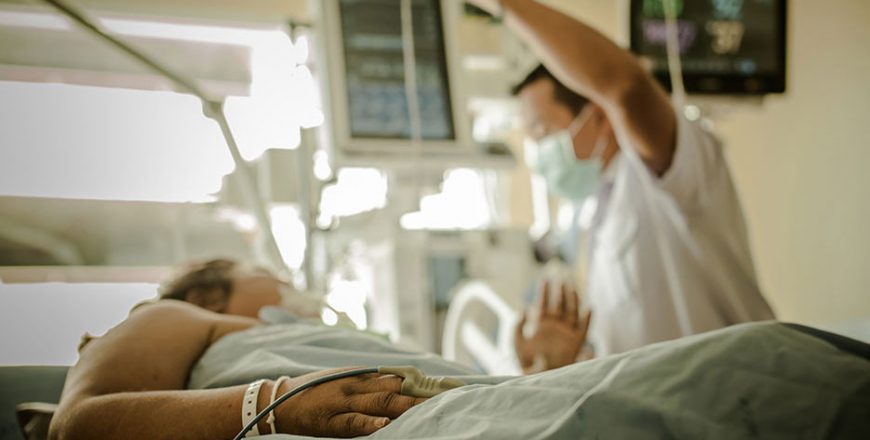END OF LIFE ISSUES – ETHICAL ISSUES
End-of-life care presents healthcare professionals with many ethical challenges and dilemmas. Advancements in medical sciences have created the possibility of reshaping the circumstances during death and can prolong lives. Understanding ethical theories and ethical principles can provide a foundation for decision making and for the provision of more compassionate, informed care.
The outcome of this course is for the learner to describe key ethical considerations at the end of life and identify the tools necessary to make ethical decisions when providing care for patients at the end of their lives.
END OF LIFE ISSUES – HOSPICE AND PALLIATIVE CARE
Using a multidisciplinary team approach, the primary goals of hospice and palliative care are to provide symptom control, psychosocial and spiritual care, and optimal quality of life. The role of hospice and palliative care is rapidly expanding due to a better understanding of end-of-life issues by health care professionals.
The outcome of this course is for the learner to describe end-of-life issues in hospice and palliative care, including the specific characteristics of hospice and palliative care and the similarities and differences in hospice and palliative care for both adults and children
END OF LIFE ISSUES – PAIN ASSESSMENT AND MANAGEMENT
Pain assessment and management are especially important for high-quality, compassionate, and ethical end-of-life care. To provide quality care to individuals at this stage of their lives, health care practitioners must be particularly skilled at assessing pain, understanding misconceptions of pain management, addressing cultural issues in pain management, and providing effective pain therapies.
The outcome of this course is for the learner to describe pain assessment and management options for patients of all ages during their end-of-life care, including how to address cultural considerations and pharmacologic and nonpharmacologic management techniques of pain at the end of life.
END OF LIFE ISSUES – PHYSIOLOGICAL CHANGES AT THE END OF LIFE
For health care professionals to provide compassionate, quality care to patients at the end of life, they must understand the many changes the patient undergoes. Holistic end-of-life care provides relief, comfort, and support whenever possible. It involves a comprehensive approach to the physical, emotional, psychological, and spiritual aspects of the individual during this unique time in their lives.
The outcome of this course is learner to describe the physiologic changes in body systems associated with the end of life and guidelines for the care of specific physical symptoms at the end of life.
END OF LIFE ISSUES – DEATH, DYING AND GRIEF
What is grief? What are normal grief responses? What is involved in the final life transition—death? The dying experience is a profound, individual experience. The experience of loss and grief are as individual and unique as the persons involved. During this time, people often raise questions about the meaning of life. The role of culture, palliative and hospice care, advance directives, the role of spirituality in death and dying, healing strategies and rituals are all important aspects of effective end-of-life care.
The outcome of this course is for the learner to describe the psychological, physical, social, and spiritual aspects of death and dying for older adults.
CULTURAL CONSIDERATIONS AT THE END OF LIFE
At the end of life, attitudes about the loss of a loved one profoundly affect how both a dying person and his or her family and friends address the dying and the grieving processes. Diverse populations in the United States provide health-care professionals with tremendous opportunities to bridge cultural gaps and learn about different values and religious and spiritual belief systems.
The outcome of this course is for the learner to describe specific cultural influences at the end of life for African Americans, Asian Americans, Hispanic Americans, American Indian/Alaskan Natives, and Muslim Americans, including the impact of religion and spirituality on funeral and burial practices and the challenges for healthcare professionals to become culturally competent with end-of-life care.
PEDIATRIC END-OF-LIFE CARE – COMPASSION AND CARING
The death of a child is a devastating event with long-lasting effects on family, friends, and healthcare providers. While pediatric death rates in the United States have declined in the last century, pediatric death remains a critical healthcare issue. Often parents and children do not receive the care they deserve and require during this challenging time.
The outcome of this course is for the learner to explain important factors relating to caring for parents and a dying child, including symptom management and compassionate spiritual care of a dying child.
CAREGIVING AT THE END OF LIFE – ISSUES AND CONSIDERATIONS
Caregivers are individuals who provide care to an individual who needs assistance. Caregivers can be professionals but are often unpaid individuals who support a loved one through an illness or the last phase of life. The experience can be immensely gratifying and rewarding as well as challenging and stressful. By anticipating the demands of end-of-life, caregiving can shift the journey to one in which support focuses on acceptance and healing.
The outcome of this course is for the learner to describe family and caregiver issues related to end-of-life care, including patient rights and the ethical principles of caregiving; behavioral, nutritional, and safety issues of caregiving; and integrative health methods of supporting caregiver well-being.
ORGAN AND TISSUE DONATION AND RECOVERY
The gift of organ donation is the gift of life. However, the gap between those who need an organ or tissue donation and the number of donations available is wide and growing. Health care providers need to understand the issues surrounding organ and tissue donation and recovery so they can effectively support the needs of donor families and donor recipients.
The outcome of this course is to for the learner to describe the complex and challenging issues surrounding organ and tissue donation and recovery, including methods of compassionately and effectively supporting the families during the process.












